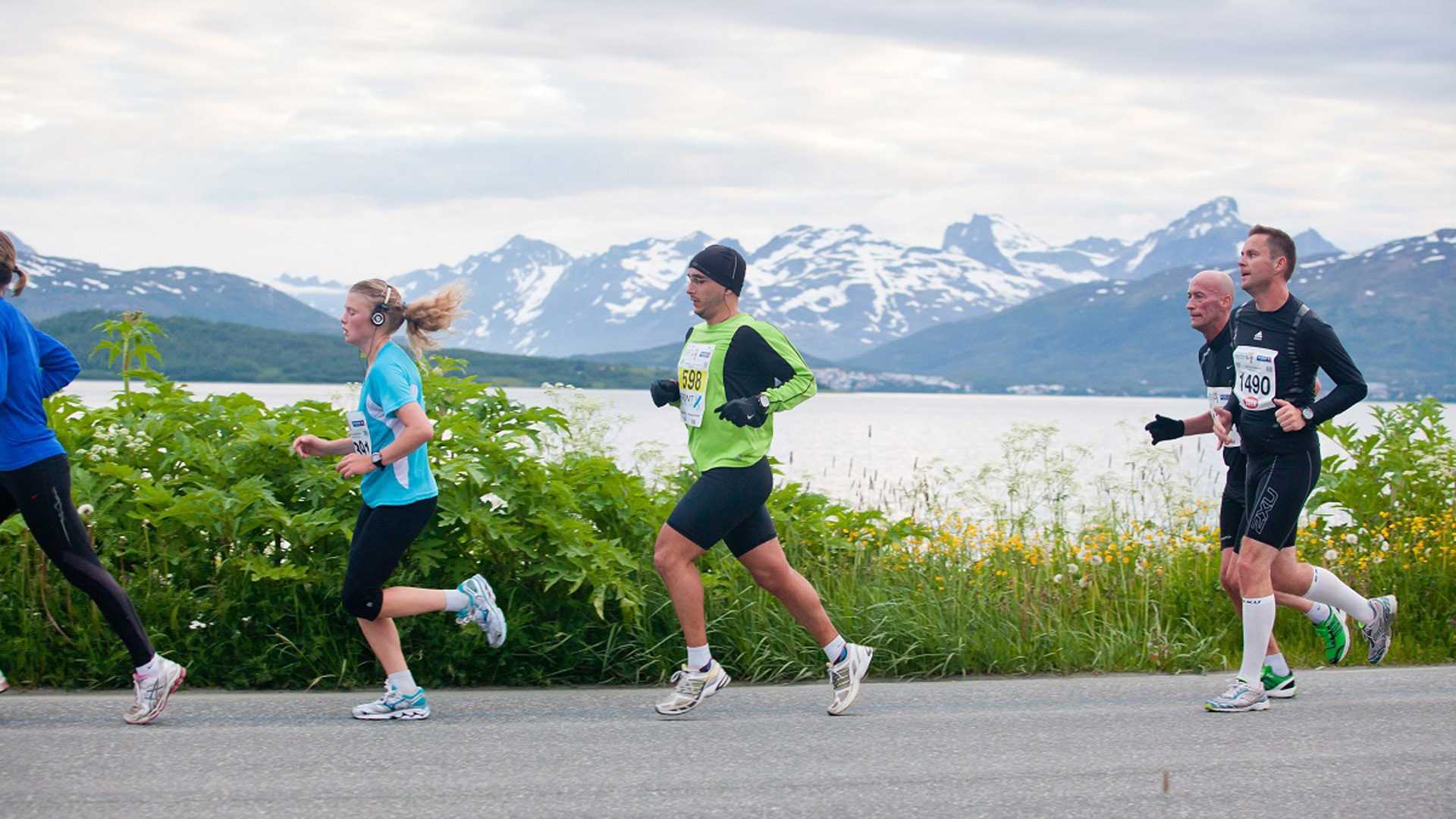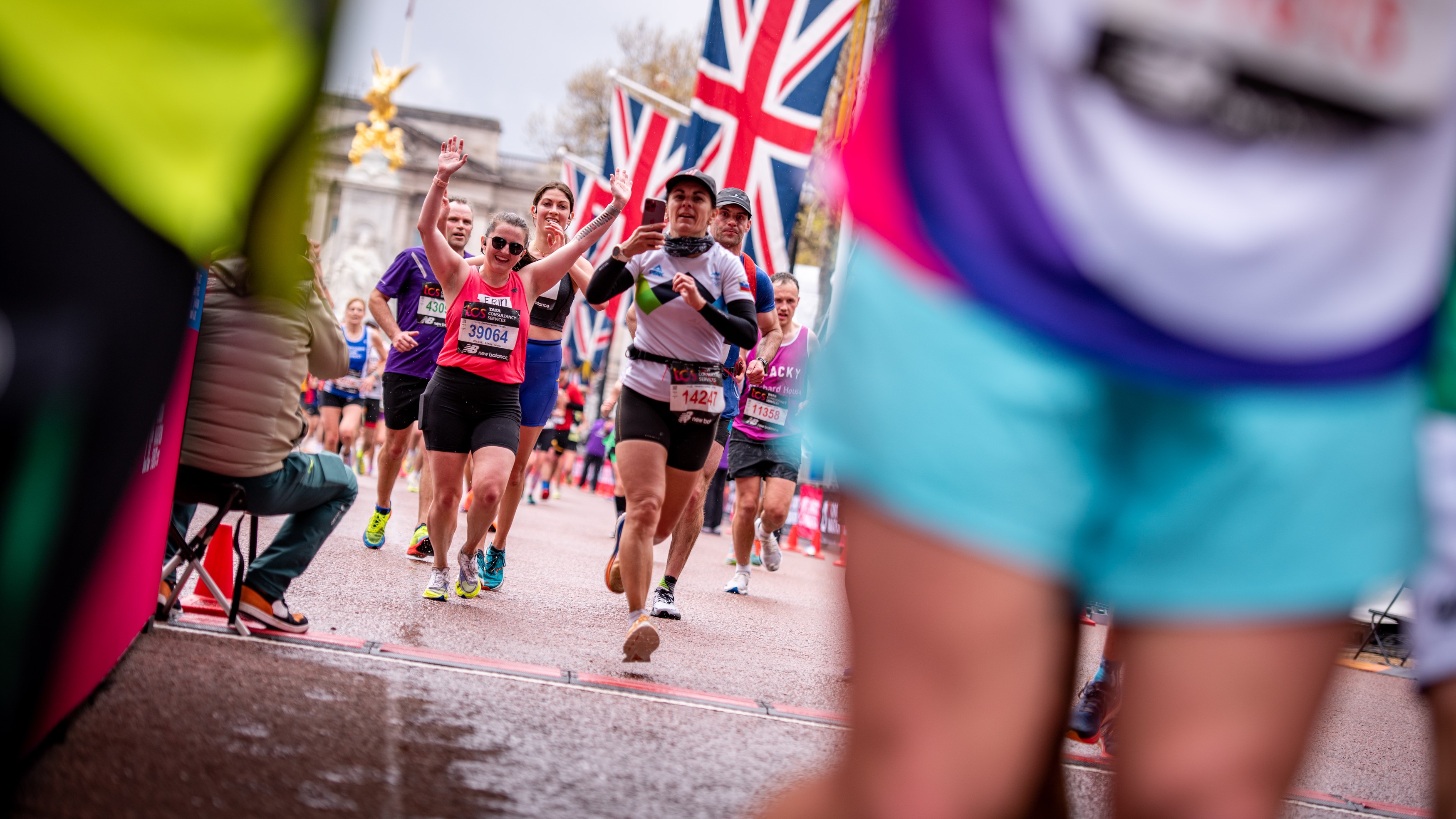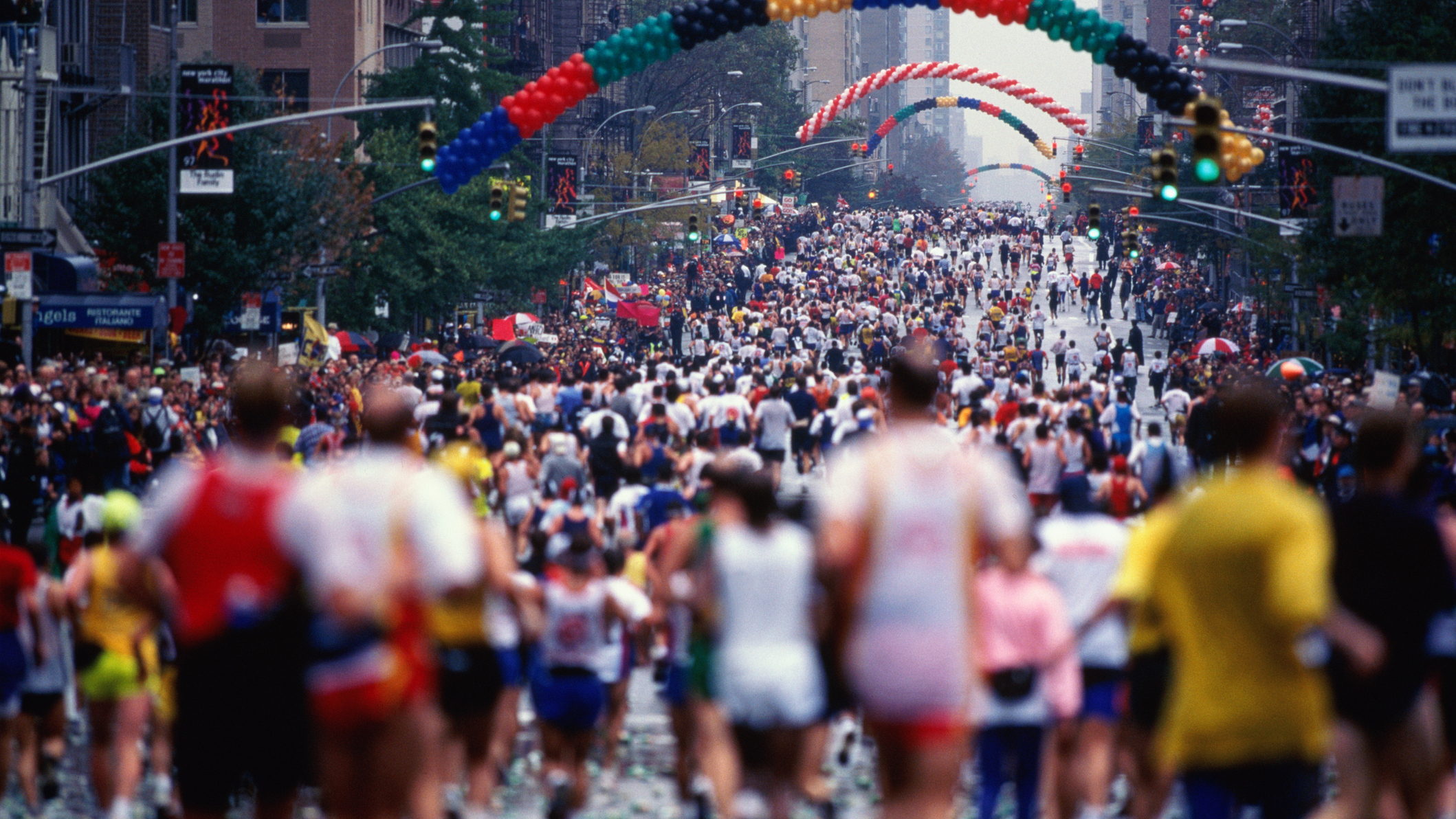Should you run a destination race? A look at the pros and cons
Much like a destination wedding, a destination race lets you use your event to visit somewhere beautiful and keep the guest list down, but is that enough of a reason to give it a go?

All the latest inspiration, tips and guides to help you plan your next Advnture!
You are now subscribed
Your newsletter sign-up was successful
The alarm goes off and you jump out of bed, pulling back the curtains to reveal the sun rising over the impressive architecture of Barcelona. You eat an early traditional breakfast of eggs and tomato toast then pull on your road running shoes and join the throngs of other runners at the marathon start line. You’re going to spend the next few hours taking in some of this cosmopolitan city’s most famous sights while doing one of your favorite activities, then recover by feasting on local delicacies like salted cod and black rice.
At least, that’s the theory of running a destination race, but does it really work that way? In this article, we take a look at the pros and cons of running a destination race to help you decide whether you need to pack your passport.
What is a destination race?
In many ways, a destination race is much like a destination wedding. You combine your love of running with travel and use a competitive event like a marathon or even a 10k to see a new place in a different way.
A destination race typically involves signing up for an event in a sought-after location and, rather than just driving somewhere for the race then heading home straight after, involves spending a few days or longer exploring the city or area where the race is being held.
Like a destination wedding, you can use your event to visit somewhere beautiful and keep the guest list down, but is that enough of a reason to give it a go? And what are the disadvantages?

The pros of running a destination race
1. You’ll see new places
Obviously, the biggest appeal of a destination race is that you get to see some incredible new places – think Zion National Park, Vancouver, Kauai or Rio de Janeiro. Of course, you can visit those places without running a half marathon, but if you love running, you’ll love the idea of combining the two experiences. Also, running in a competitive environment lets you move at an uninterrupted pace through areas that might usually be crowded with tourists. Afterwards, you can spend your recovery sightseeing and eating delicious local fare.
2. It combines expenses
Obviously, running a destination race is more expensive than running a race at home, but if you already take a lot of trips and sign up for a lot of races, combining the two could cut down on your expenses a little. Basically, two of your costly activities can come out of the same budget instead of having one pot for races and another for vacations.
All the latest inspiration, tips and guides to help you plan your next Advnture!

3. It keeps things fresh
Running your hometown marathon might give you the advantage of knowing the course like the back of your hand, but road running can be monotonous enough without wearing down the same old route every day. Running destination races means every event is an entirely fresh experience, with new courses, sights, people and weather.
4. It raises the stakes
Though those who sign up to run a marathon tend to be pretty motivated, there are always those folks who register for a race then don’t train and never make it to the starting line. Clearly, you could opt for a destination race and still not start, but if you’ve booked flights and a hotel and brought your partner along, it might serve as motivation to actually run.
5. You support local economies
Traveling to a tourist destination for a race and staying there for a few days means that you’ll support the local economy better than if you just drop in for a race then leave immediately. Big races tend to use up a lot of resources and can disrupt local communities, but if you stay and spend money in restaurants, at hotels and on tourist attractions then these types of events can be a boon, rather than a drain, for locals.

The cons of running a destination race
1. It leaves a bigger footprint
Competitive runners who travel to race, like those who run in the UTMB, have an unnecessarily large carbon footprint. Without large-scale destination events, a runner’s footprint would be largely down to the sheer number of shoes they get through, but once you add in plane travel, it becomes a different story altogether. Racing closer to home vastly reduces your carbon emissions and is better for the planet. Check out our guide to being a more sustainable trail runner for more on this topic.
2. It’s more expensive
Obviously, if we’re just comparing a nearby race to a destination race, the latter will cost you more. In addition to your registration fee, you’ve got to factor in plane travel and accommodations, travel insurance, any visa requirements and then all the extras that come with going on vacation.

3. It’s harder to train for
Unless you find a race in a place that has a near-identical climate to the place where you live, the chances are that the destination you have in mind will have different conditions to the ones you’ve trained in.
Come race day, you might find yourself running in conditions that are significantly hotter, colder, more humid, drier or at higher elevation than you’re used to, and this can drastically affect your performance, especially in longer races when you haven’t given yourself any time to acclimate.
Now, this can work in your favor if you’ve been training at high altitude and are racing at sea level in conditions that aren’t too extreme, but in general it’s helpful to train in conditions similar to those you’ll be racing in, especially if you’re trying for a PB.
4. You may not be at your best
Not all flights result in jet lag, but if you are changing time zones or even just taking a red eye flight, you’ll probably knock out your body clock for a few days which can wreak havoc on your performance. Even if you don’t take a long haul flight and give yourself a couple of days to recover before racing, you’ll still be out of your routine on vacation and may not be sleeping as well as you would in your own bed, while eating unfamiliar food can affect your digestion and energy.

5. It could detract from your enjoyment of the trip
If a big part of the attraction of a destination race for you is the destination itself, then plonking an intense competition into the experience could actually mean you have way less fun on your trip than you normally would. In fact, if you’re focused on making the podium, you might not even notice sights like Big Ben or Kuaui’s volcanoes.
With a shorter race, this isn’t likely to matter, but a half marathon or longer means you need to be focused and you can’t spend the first few days of your vacation eating and drinking whatever you want. A longer race also takes some serious recovery, and you might find the last thing you want to do is end up wandering around a city afterwards sightseeing. If you’re exhausted, or injured, following your race, you could have spent a lot of money to mostly see the inside of a hotel room.

Should you run a destination race?
As you can see, there are some definite pros and some real cons to running a destination race, and a lot of your decision probably comes down to whether you want to set a PB, or just have fun. If your main focus is performance, a destination race could definitely be a disadvantage and you’ll almost certainly be better off staying closer to home.
There are, after all, other ways to enjoy active vacations without actually competing, from trail running in the Alps by day and eating fondue by night to going on a hiking retreat in Yosemite National Park. Some would argue that slower adventures allow you to take in your surroundings better than racing through them anyway.
Of course, if you really love the spirit of racing and are keen to combine it with a trip, there’s another solution and that’s signing up for a shorter race. A fun 10k or half marathon could be the perfect compromise and allow you to satisfy your thirst for competition without sacrificing the merits of adventure.
Julia Clarke is a staff writer for Advnture.com and the author of the book Restorative Yoga for Beginners. She loves to explore mountains on foot, bike, skis and belay and then recover on the the yoga mat. Julia graduated with a degree in journalism in 2004 and spent eight years working as a radio presenter in Kansas City, Vermont, Boston and New York City before discovering the joys of the Rocky Mountains. She then detoured west to Colorado and enjoyed 11 years teaching yoga in Vail before returning to her hometown of Glasgow, Scotland in 2020 to focus on family and writing.

